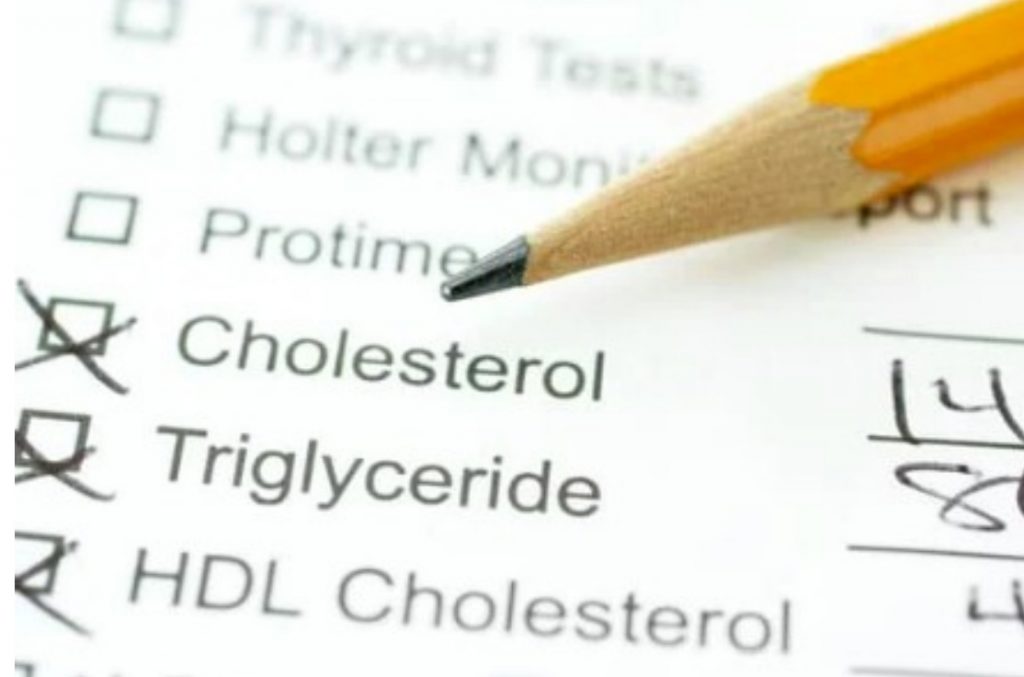Having a healthy heart is essential for overall well-being and with February being heart health month, there’s no time like the present to tune up your ticker.
Here are ten heart health tips to help reduce your risk factors for developing heart disease.
1. Check your blood pressure
High blood pressure can increase the chance of developing heart disease and can easily be measured with a home blood pressure monitor or at your local pharmacy.
Blood pressure readings can fluctuate significantly so taking multiple readings can give more accurate results. Put the blood pressure cuff on your arm and sit quietly for a few moments before taking the blood pressure test.
Generally speaking, a healthy blood pressure range is typically seen as being between 90/60 mmHg to 120/80 mmHg. Blood pressure that falls outside this range can indicate both high and low blood pressure. High blood pressure, in particular, can lead to more serious health issues if not addressed.
High blood pressure can be an indication of cardiovascular disease. It is important to monitor your blood pressure regularly and speak with your doctor if you have any concerns.
2. Follow a healthy diet
A balanced heart-healthy diet includes plenty of fruits, vegetables, whole grains, lean proteins, and healthy fats can help to protect your heart from disease.
To reduce the amount of saturated fat in your diet, start by looking for leaner cuts of red meat and replacing processed animal fats, like lard or bacon, with plant-based options. Whenever possible, opt for skinless poultry to further reduce your saturated fat intake.
When possible, go for higher-fiber foods like whole grains and fresh fruits and vegetables to bulk up your meals and help you feel full without relying on high-fat ingredients. Finally, use healthy oils such as olive oil or avocado oil when cooking instead of butter or margarine.
Limit sodium intake to no more than 2,300 milligrams per day. Reduce the frequency that you eat at restaurants, given you are not in control of the salt. Restaurants tend to use more sodium than home cooks.
3. Exercise regularly
Exercise is an important part of keeping your heart healthy, as it can increase circulation, reduce stress, and help you maintain a healthy weight. It doesn’t stop there – when done correctly and according to individual needs, exercise can also help you build endurance and improve the strength of your heart muscle.
The most important thing to remember when exercising is that you should huff and puff; this increases oxygen intake which helps to support cardiovascular health. If you want to maximize the positive effects of working out on your heart, make sure you stay at a steady pace without straining yourself.
Aim for at least 30 minutes of physical activity on most days, and a minimum of 150 minutes per week. Regular exercise helps lower blood pressure, increases good cholesterol, and decreases bad cholesterol levels in the body. This can help reduce the risk of heart disease.
It is important to speak to your physician if you are embarking upon an exercise routine. If your exercise routine has lapsed, your physician may recommend you start slower along the lines of gentle aquafit, or other pool exercises, or start with short walks. Even light physical activity has been found to significantly help reduce the chance of experiencing heart-related complications.
4. Quit smoking
Smoking increases the risk of atherosclerosis or hardening of the arteries.
Quitting smoking is one of the best things you can do for your heart health. Studies have shown that people who quit smoking not only reduce their risk of developing coronary heart disease, but their levels of HDL (good cholesterol) and LDL (bad cholesterol) also improve significantly.
The chemicals inhaled while smoking can damage the heart and blood vessels. Quitting smoking can help reduce the risk of stroke, high blood pressure, and other cardiovascular diseases. Even those who were long-term smokers have seen improvements in their overall cardiovascular health after quitting.
Smoking cigarettes or using other tobacco products increases the risk of heart disease. Quitting smoking can help reduce the risk and improve overall health.
Quitting smoking reduces your risk of disease (including heart disease) and could add as much as ten years to your life expectancy.
5. Reduce stress
Increased levels of stress can lead to high blood pressure and cholesterol, increasing your risk of developing heart disease.
Everyone experiences stress in one way or another, and it’s important to find healthy ways to manage that stress for both your physical and mental health.
One of the most common strategies is to practice meditation, which has been proven to help reduce anxiety, improve sleep quality, and even boost your overall mood. Fortunately, there are plenty of easy-to-access resources available online that can provide guided meditations such as Headspace.com.
Additionally, taking breaks throughout the day – even for five minutes at a time – can do wonders for your mental clarity and help keep your stress levels in check. Exercise is also an effective way to reduce stress by releasing endorphins; even just walking for 20 minutes three times a week can have profound effects on physical and mental well-being.
6. Limit alcohol intake
Excessive drinking of alcoholic beverages can increase your risk of heart disease and stroke.
When it comes to heart health, limiting your intake of alcohol is essential. The American Heart Association recommends not consuming more than two drinks per day for men, and one drink per day for women. Alcohol adds empty calories that can contribute to weight gain, increases blood pressure, and affects how the body metabolizes fat.
While red wine has been associated with some possible heart health benefits, those benefits may be outweighed by the overall risks of drinking too much. By limiting your alcohol intake and making healthy choices like drinking water or unsweetened tea instead, you’ll be taking a big step towards keeping your heart healthy.
7. Manage diabetes
People with diabetes are at higher risk of developing heart disease. A healthy diet, regular exercise, and managing blood sugar levels can help reduce the risk.
Managing diabetes is essential for preventing the onset of cardiovascular disease. First and foremost, maintain strict control over your blood sugar levels; check with your healthcare provider to determine how often your glucose needs to be checked, and keep track of these readings in a log.
Eating a balanced diet low in refined carbohydrates and saturated fat, as well as exercise regularly, can help normalize blood sugar levels. This combination is also beneficial in maintaining a healthy weight, which can reduce the risk of developing diabetes complications. Lastly, be sure to take any prescribed medications regularly and speak to your healthcare provider if you have any medical concerns or questions.
8. Know your family history
Some people have a greater chance of developing heart disease due to their genes, so knowing your family’s medical history is important for prevention.
Many of us may not realize it, but our genes can impact our risk of developing many conditions including heart disease. Genetic factors are responsible for several inherited conditions, many of which are related to the heart and can increase the chances of developing cardiovascular problems. For example, some people may carry a gene that increases their risk for high cholesterol levels or causes atrial fibrillation.
If you have a family history of heart disease, speak with your doctor about potential genetic testing to help identify any genetic tendencies and minimize your risks. Taking preventive measures such as eating a healthy diet, exercising regularly, and monitoring other health markers like cholesterol can help further reduce your risk for developing cardiovascular disease.
9. Check your cholesterol levels
High cholesterol can increase the risk of heart disease, so keeping it under control is important. Your doctor will be able to check your cholesterol levels and recommend ways to keep them in a healthy range.
Cholesterol levels can play an important role in the risk of developing heart disease. High levels of “bad” cholesterol (LDL) can contribute to the buildup of plaque in the arteries, resulting in atherosclerosis. This increases the chance of a blockage and reduces blood flow. On the other hand, high levels of “good” cholesterol (HDL) can help protect against cardiovascular problems.
Keeping your cholesterol numbers within recommended ranges is essential for optimal heart health; this includes regularly monitoring your diet, watching your weight, and exercising regularly as well as talking with your doctor about other treatments such as medication if necessary.
10. Maintain a Healthy Weight
Maintaining a healthy weight is essential for heart health. Being overweight can increase the risk of developing heart disease.
Excess weight can put a strain on the cardiovascular system, leading to an increased risk of developing high blood pressure and diabetes. Additionally, carrying excess fat can be indicative of unhealthy lifestyle choices such as lack of exercise or poor eating habits. Therefore, it is important to maintain a healthy body weight to reduce the chances of developing any heart-related illnesses.
Eating a balanced diet, exercising regularly, and limiting junk food can help you attain a good weight and body mass index.
A Few Final Thoughts
Now that you are armed with these 10 tips, you may be better set to take your health by the reigns and expand your repertoire of healthy habits. The more you know about heart health, the better prepared you will be to make lifestyle changes to reduce your risk of developing cardiovascular disease.
Educating yourself on the risk factors associated with this type of illness can help you take steps to maintain a healthy lifestyle and protect your heart. Learning the warning signs of a heart attack is also an important practice for prevention and getting help quickly if you do experience one. By staying informed and in tune with your body, you can give yourself the best chance of having a healthy heart in the future.
Here’s a Few of Good ways to educate yourself about Heart Disease
Watching health and fitness-related YouTube videos can be an informative and inspiring way to learn more about taking care of your heart. There are countless videos on managing the risk of heart disease including high blood pressure and high cholesterol. But it’s important to remember that not all advice is created equal, so make sure to check out the credentials of the speaker to make sure they are a qualified health professional.
For any health-conscious individual, two books, in particular, stand out as must-reads.
- “Heart Book: How to Keep Your Heart Healthy” by Jeffrey L Dach MD, a viral radiologist, which explains the ins and outs of preventing and reversing coronary artery disease.
- “Heart 411: The Only Guide to Heart Health You’ll Ever Need” by heart surgeon Marc Gillinov M.D. and cardiologist Steven Nissen M.D. where they answer the most common, and most important, questions their patients over the years have asked.
- “Heart Health For Canadians: The Definitive Guide” by Dr. Beth Abramson is a full-spectrum comprehensive guide to heart disease including debunking myths in womens heart health.
Whether you are looking to learn more about preventing or treating a heart condition, these two books offer invaluable insight from experienced medical professionals.
Talking to your doctor is a great way to gain an understanding of your specific risk factors and develop a prevention plan. Additionally, talking to family and friends who have experienced cardiovascular issues can also help develop a better understanding of the condition. Other resources, such as joining support groups or attending health seminars, can help you stay informed on the latest developments in the field.





